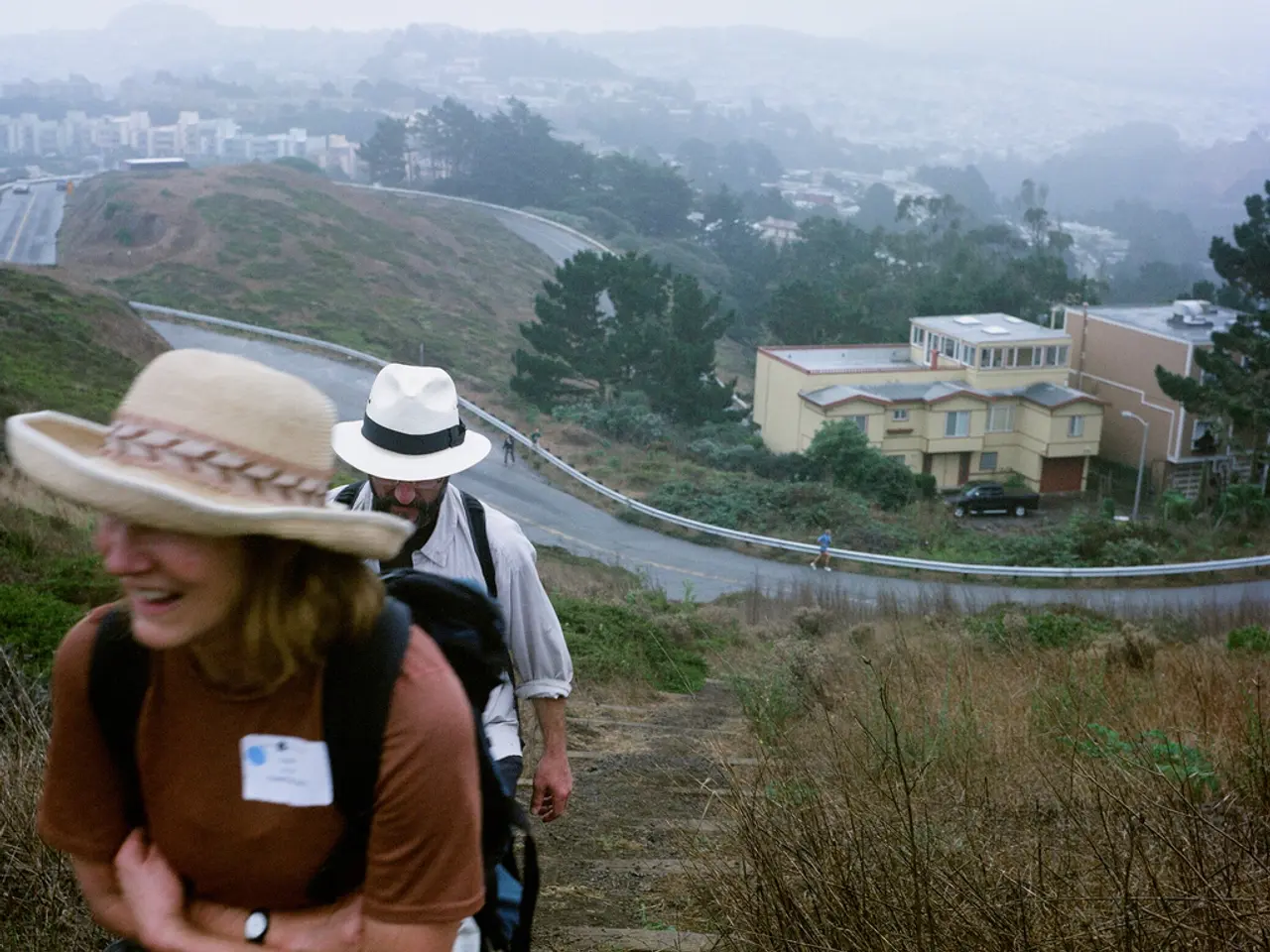Danger looms on the mountain: be ready to face death, as cautioned by Messner
Mountaineering Legend Reinhold Messner Expresses Sympathy and Respect for Deceased Olympic Champion Laura Dahlmeier
In the aftermath of the tragic accident that claimed the life of Olympic champion Laura Dahlmeier during a mountaineering expedition in Pakistan, renowned mountaineer Reinhold Messner has offered his thoughts and insights on the inherent risks associated with alpinism.
Messner, a seasoned mountaineer who has conquered numerous peaks, including the first solo ascent of Mount Everest without supplementary oxygen, views mountains as naturally dangerous and believes that risk is an inseparable part of mountaineering. He emphasized that even the most skilled climbers, like Dahlmeier, can face uncontrollable natural hazards such as rockfalls or avalanches, which can drastically reduce the chances of survival or successful rescue [2][4][5].
Speaking about Dahlmeier's expedition on the challenging Laila Peak in the Karakoram, Messner praised her as an "excellent alpinist" who was well-prepared for the challenging climb. However, he also acknowledged that in such extreme circumstances, the possibility of self-rescue or successful external rescue is "relatively small" due to the sheer toughness and unpredictability of nature [2].
When addressing the controversial topic of Dahlmeier's decision not to be rescued, Messner implicitly supports the idea that rescue operations in severe alpine conditions are often limited by the harshness of the environment and the limits of technology and human capability. He emphasized that sometimes, despite the best efforts, no signs of life or access to the injured can be found during rescue attempts, a reality that should be anticipated as part of the "residual risk" of mountaineering [2].
Messner expressed sympathy for Dahlmeier's relatives, who find it difficult to bear the thought of her body remaining on the mountain. However, he believes that the decision about what happens to her remains with her parents [1].
In conclusion, Messner's reflections on Dahlmeier's accident underscore his longstanding philosophy that risk is not something to be eliminated but respected and accepted as part of mountaineering. He acknowledged the shock over her death but stressed that even the most skilled climbers can face uncontrollable natural hazards when scaling the world's highest peaks [2].
[1] Messner finds it difficult for relatives to bear the thought of the body remaining on the mountain. [2] Messner finds Dahlmeier's decision understandable. [3] Messner believes that the parents should decide what happens to the body. [4] Dahlmeier was descending the 6,069-meter-high Laila Peak. [5] Messner finds the idea of the body remaining on the mountain unpleasant. [6] Dahlmeier stated before the accident that she did not want to be rescued to avoid endangering anyone. [7] Olympic champion Dahlmeier died while mountaineering in Pakistan. [8] Reinhold Messner views mountaineering risks as inherent and unavoidable, emphasizing that mountains are naturally dangerous and that such risk is part of their essence.
- Reinhold Messner, sharing thoughts on sports-related risks, noted that even the most skilled athletes, like the deceased Olympic champion Laura Dahlmeier, can encounter uncontrollable hazards during their pursuits, such as in hockey games, golf tournaments, sports-betting events, auto racing, or mixed-martial-arts bouts.
- Messner's reflections on Dahlmeier's mountaineering accident highlight the inherent risks associated with various sports, including tennis or weather forecasting, where the harshness of the environment and the limits of technology and human capability can put participants in dangerous situations.
- In light of Dahlmeier's decision not to be rescued and her preference for her body to remain on the mountain, Messner emphasized the role of weather conditions in sports like sports-analysis and mountain climbing, where unpredictable weather can make rescue attempts challenging.
- Messner's sympathy for Dahlmeier's relatives extends to all sports, where families often struggle with the thought of their loved ones remaining on the field or court, much like the remains of deceased athletes may remain on the mountain.
- While tragic physical accidents like Dahlmeier's have limited impact on sports like golf or tennis, Messner's philosophy of respecting and accepting risk remains applicable, pushing athletes to push their limits and to prepare for unpredictable situations in any sport they undertake.






